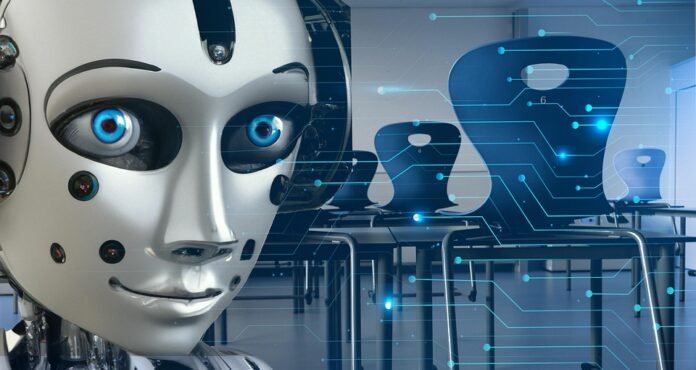Here is an article about the blurring lines between human and AI-generated music.
Is This Song by a Human or AI? You Can No Longer Tell.
You’re scrolling through your favorite streaming service and a new song catches your ear. It’s a beautifully layered indie-folk track with a haunting melody, a surprisingly poetic lyrical turn, and a vocal performance filled with what sounds like genuine heartache. You’re hooked. You tap to see the artist’s name, expecting to find a rising star from Brooklyn or a seasoned Nashville songwriter. Instead, the artist is an algorithm.
This scenario isn’t science fiction. It’s happening right now. We have officially crossed the uncanny valley of music, arriving at a point where the distinction between a song crafted by a human and one generated by artificial intelligence is becoming impossible to discern. The musical Turing Test is no longer a future concept; for many, it’s a test we would already fail.
From Robotic Bleeps to Soulful Ballads
For years, AI music was a novelty. It produced robotic, predictable melodies that sounded like a parody of a genre rather than a contribution to it. Early models could string together a few pleasant piano notes or create a generic techno beat, but they lacked the key ingredients of great music: structure, emotional arc, and that indefinable spark of “soul.”
That era is definitively over. The recent explosion in generative AI, powered by sophisticated models like those behind ChatGPT, has been applied to sound with breathtaking results. Platforms like Suno and Udio are leading the charge. A user can type a simple text prompt—”a soulful blues song about losing a Wi-Fi connection,” or “a high-energy 80s synth-pop track about a robot falling in love”—and within seconds, the AI delivers a fully produced, radio-quality song complete with coherent lyrics, multi-tracked instruments, and vocals that can convey joy, sorrow, or angst.
How is this possible? These AI models have been trained on an immense library of human-created music. They have listened to everything from Bach to Beyoncé, a thousand times over. They haven’t just learned notes and chords; they have learned the patterns of tension and release, the conventions of genre, the relationship between lyrical themes and musical mood. The AI is not just mimicking; it’s synthesizing and creating something new from the entire history of recorded sound.
The Artist as a Conductor
For musicians, this new reality is both a source of immense anxiety and unprecedented opportunity. The fear is obvious: if an AI can create an endless stream of royalty-free background music or even chart-topping hits, what is the value of a human artist?
But many creators are flipping the narrative, viewing AI not as a replacement, but as a powerful new instrument—a co-pilot in the creative process.
- Breaking Writer’s Block: A songwriter stuck on a chord progression can ask an AI to generate ten different ideas, using one as a springboard for their own work.
- Rapid Prototyping: A musician can hum a melody into a mic and have an AI instantly flesh it out into a fully orchestrated demo, saving hundreds of hours and thousands of dollars in studio time.
- Democratizing Creation: Individuals with no formal musical training but a strong creative vision can now produce the music they hear in their heads. The artist’s role shifts from a performer or technician to that of a creative director, guiding the AI to realize their vision.
The Listener’s Dilemma and the Ghost in the Machine
While the implications for artists are profound, the questions for listeners are more philosophical. Does it matter who—or what—created the song that moves you to tears?
For centuries, we’ve connected with music because we believe it’s a transfer of emotion from one human to another. We hear the pain in a blues singer’s voice and feel we are sharing in their lived experience. When we discover that the “pain” is a mathematically generated vocal texture designed to simulate human emotion, does it cheapen the experience?
This is the ultimate question of authenticity in the age of AI. If a song is good, it’s good. But part of our connection to art has always been about the story behind it—the artist’s struggle, their genius, their humanity. An AI has no story. It has no heartbreak, no joy, no memories of a rainy Tuesday that inspired a lyric. It is a ghost in the machine, a perfect mimic of an experience it can never understand.
A Legal and Industrial Quagmire
Beyond the creative and philosophical debates lies a practical minefield. The infamous “fake Drake” track, “Heart on My Sleeve,” which used AI to clone the voices of Drake and The Weeknd, gave the world a stark preview of the copyright chaos to come.
Who owns an AI-generated song? Is it the user who wrote the prompt? The company that built the AI? Or do the countless artists whose work was used to train the model deserve a cut? These questions are currently being debated in courtrooms and boardrooms, and the answers will fundamentally reshape the music industry.
The future of music is not one where humans are obsolete. Instead, it’s likely a future of hybrid creativity. The lines will blur not just between human and AI, but between creator and curator, musician and prompt engineer. The next great artist might not be a person, but a partnership.
So, the next time you hear a song that stops you in your tracks, you might find yourself asking the question. But perhaps the better question isn’t, “Was this made by a human or an AI?” but rather, “Does it move me?” As we navigate this brave new world of sound, the answer to that second question may be all that truly matters.

